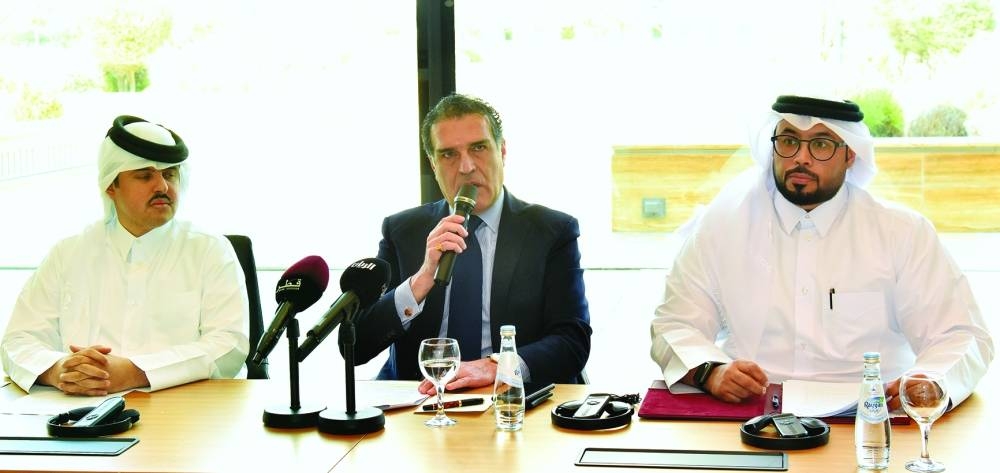The inaugural Earthna summit aims to raise global challenges in sustainability and provide directions in meeting these challenges and help build new sustainability pathways for countries with similar climate to Qatar.
The Earthna Summit organised by the Earthna Centre of Qatar Foundation (QF) in collaboration with the Ministry of Environment and Climate Change, is under the theme, ‘Building New Sustainability Pathways for Hot and Arid Environments.’
The summit– aiming to be carbon-neutral – takes place from March 8–9 at Msheireb Downtown Doha. The details of the summit were disclosed Sunday at a press conference by Dr Gonzalo Castro de la Mata, executive director of Earthna; Saad al-Hitmi, acting director of the Climate Change Department at the Ministry of Environment and Climate Change and Habes Howail, external relations manager, CEO Office, QF.
Al-Hitmi said:“The summit will provide a unique opportunity for the citizens and residents of Qatar to interact and promote sustainable practices and encourage their adoption. It will also focus on the unique challenges facing countries with difficult climatic conditions that are similar to the climate of Qatar. Hence, we will discuss these issues with such countries and work collectively to find solutions to the common challenges.”
“I affirm the commitment of Qatar in addressing these challenges and continuing our search for the best ways to solve them. I like to highlight the distinguished record enjoyed by Qatar in the field of climate action, both at the local and global levels,” he added.
The summit will see climate change and sustainability experts as well as policymakers, and those with indigenous knowledge of hot and arid climates from around the world, come together to share knowledge, ideas, and solutions on the planet’s most pressing environmental issues.
“The Earthna Summit 2023 builds on our work in Qatar by convening stakeholders from across the world to share research and innovation, their lived experiences, their indigenous knowledge, and their ideas and solutions related to sustainability in hot and arid environments,” Dr Castro de la Mata, said.
“Throughout the summit, there will be a focus on humanity’s historical connection with the environment, and how we can apply the indigenous practices that our ancestors used to address challenges that existed in their time, to current global thinking on sustainability and climate change,” he added.
The summit will feature the Earthna Village, a public area at Baharat Msheireb displaying items and methods from different countries that are part of humanity’s cultural heritage, with an agora space hosting interactive talks and workshops.
The summit aims to turn global sustainability conversations in the direction of hot and arid environments, reflecting that such global discussions have long been shaped by issues relevant to tropical and temperate countries – leading to a perception that hot and arid countries, and in particular those with desert environments, are less relevant to sustainability. It will seek to challenge this understanding and build new sustainability pathways for countries with similar climates to Qatar.
It will also highlight the impacts of climate change on countries with hot and arid climates and their critical adaptation needs, and explore the positive contributions that countries such as Qatar can make towards energy transition and addressing climate change.
“An area such as the Arabian Gulf is located in a desert environment and its biodiversity is different from others, so its path toward a sustainable future will also differ, and the journey of each country and each environment will be unique and requires pursuit in various paths, including cultural, environmental and social sustainability,” added, Howail.

Officials speak about the inaugural Earthna summit Sunday. PICTURE: Thajudheen.

